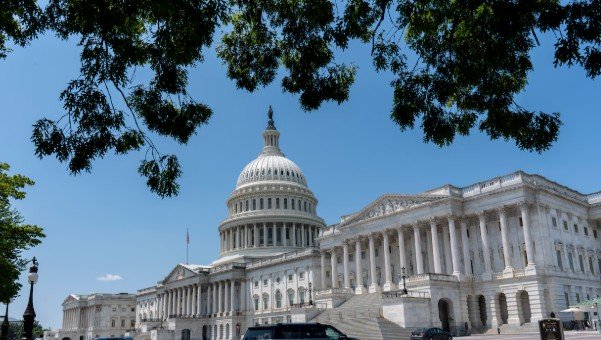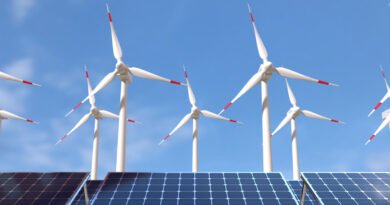GOP Energy Policy: What the New Policy Means for the U.S.
Energy policy in the United States often reflects the priorities of the party in power. With Republicans passing the One Big Beautiful Bill Act (OBBBA) in July 2025, the nation’s approach to energy is seeing a dramatic shift. The law, signed by President Trump, cuts back clean energy incentives while opening more opportunities for fossil fuel development. Supporters call this a win for energy independence and job creation, while critics warn it could set back climate goals and weaken America’s competitiveness in clean technology.
GOP Energy Policy at a Glance
The OBBBA marks a clear break from the Biden-era Inflation Reduction Act, which emphasized wind, solar, and electric vehicles. Republicans argue that focusing on oil, gas, and coal ensures reliability and keeps costs lower for consumers. At the same time, the bill reduces government support for renewable energy, making it harder for those industries to expand.
The GOP’s energy platform rests on three central themes: expanding fossil fuel production, scaling back green incentives, and making more federal land available for drilling and mining.
Expanding Fossil Fuel Production
Republicans see fossil fuels as the backbone of American energy. The bill requires the government to lease at least half of public lands that private companies want for oil, gas, or coal projects. Royalties that energy firms pay to the government have been reduced, cutting industry costs but also lowering taxpayer revenue.
The bill also directs lease sales in sensitive areas like the Arctic National Wildlife Refuge and the National Petroleum Reserve in Alaska. Supporters argue this strengthens U.S. energy security and reduces dependence on foreign oil. Critics, however, warn of environmental damage and long-term risks to ecosystems.
Rolling Back Renewable Energy Incentives
The Inflation Reduction Act gave major boosts to clean energy. Tax credits for solar, wind, electric vehicles, and home electrification were central to that plan. The OBBBA changes course by phasing out many of those credits earlier than expected.
For example, electric vehicle tax credits will end by September 2025. Credits for EV charging stations will be phased out by mid-2026. Hydrogen incentives will end by 2027. While some nuclear and biofuel credits remain, the clear focus is on limiting subsidies for renewables.
Republicans defend these changes by saying the government should not “pick winners and losers.” They argue the market should decide which energy sources survive. Opponents counter that fossil fuels have long benefited from subsidies and favorable policies, meaning renewables face an uneven playing field without support.
Public Lands and Energy Leasing
The OBBBA reshapes how federal lands are used for energy. The law brings back noncompetitive leasing, which allows companies to acquire unsold land at cheap prices for drilling or mining. It also lowers fees that companies must pay to lease public lands, cutting billions from federal revenue over the next decade.
By requiring quarterly lease sales for oil and gas, the law ensures a steady stream of land is available to industry. Critics say this approach favors short-term production at the expense of conservation and recreation.
This shift highlights a core GOP belief: natural resources should be used to fuel economic growth, even if it means less emphasis on climate policy.
Clean Energy Rollbacks and Global Competition
One of the biggest concerns about the GOP energy agenda is how it affects America’s standing in the global clean energy race. Countries like China and Germany are heavily investing in renewable energy and electric vehicles. The U.S., by scaling back support, may lose ground in technology, manufacturing, and jobs.
The New York Times described the bill as derailing renewable energy progress and risking America’s ability to compete with China in solar and battery production. Think tanks estimate that hundreds of thousands of clean energy jobs could be lost, and household energy costs could rise as fewer renewable projects come online.
Balancing Fossil Fuels and Climate Goals
Republicans argue their plan balances economic growth with energy needs. They highlight lower energy costs, more domestic jobs, and reduced reliance on foreign oil. They also stress that technologies like nuclear power and carbon capture are still supported under the law.
However, climate scientists warn that cutting renewable incentives while boosting fossil fuels will increase carbon emissions. Without strong clean energy growth, the U.S. may miss targets to cut emissions and slow global warming.
Conclusion
The GOP’s One Big Beautiful Bill Act signals a clear turn in U.S. energy policy. Fossil fuels are prioritized, renewables are scaled back, and public lands are opened for drilling and mining. Supporters see this as a path to stronger energy independence, but opponents believe it risks jobs, raises long-term costs, and weakens America’s fight against climate change.
As the bill rolls out in the coming years, its impact on both the economy and the environment will become clearer. What is certain now is that America’s energy policy is moving in a sharply different direction under Republican leadership.



